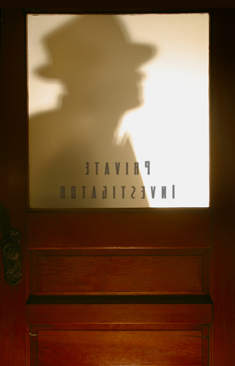December 9, 2013
Unless all relevant facts are already known, the valuation process involves researching a business, an individual or a set of assets and liabilities to determine their value.
An alarming issue raised in the June 2013 Journal of Accountancy by the American Institute of Certified Public Accountants (AICPA) suggests that CPAs who engage in the practice of forensic accounting might violate state private investigator licensing statutes.
The concept could extend to any expert providing valuation services. Private investigator licensing laws, by state, are available on the AICPA site at TinyURL.com/CFT822J.
The author’s home state of Georgia, for example, defines the private detective business to include “the business of obtaining or furnishing, or accepting employment to obtain or furnish, information with reference to: … the background, identity, habits, conduct, business, employment, occupation, assets, honesty, integrity, credibility, knowledge, trustworthiness, efficiency, loyalty, activity, movement, whereabouts, affiliations, associations, transactions, acts, reputation, or character of any person; the location, disposition, or recovery of lost or stolen property; … the securing of evidence in the course of the private detective business to be used before any court, board, officer, or investigating committee.”
The Georgia Attorney General has opined that a consumer reporting agency or a credit reporting business that is exempt from licensure requirements as a private detective business nevertheless “must obtain a license from the Georgia Board of Private Detective and Security Agencies to perform private detective business activities – that do not fall within the scope of this exemption or some other exemption.”
Perhaps the most discouraging component of Georgia’s private investigator law is its penalties. Engaging in the private detective business without a license is a continuing crime, which means that each day or fraction of a day that one practices in violation of the P.I. law, or perhaps each unauthorized action, shall constitute a separate misdemeanor offense.
What valuation activities might involve private investigator activities?
Georgia law does not regulate “valuation experts.” It does regulate the businesses or professions of real estate appraisal and accounting. Real estate appraisers are allowed to engage in “specialized services.” Accountants, likewise, must engage in certain kinds of business research for many of their services.
It appears some valuations experts might engage in the illegal practice of private investigation if not properly licensed, or if they act outside the scope of the authority granted by their licenses. Persons not given authority under state law (e.g., not CPAs or real estate appraisers, under Georgia law) might be held to stricter standards than those who do have some licensed authority.
Each state will have its own business and professional licensing laws, and each might have different requirements and scopes of authority.
How does this affect law firms?
Georgia, and likely most, if not all, other states and the federal government, has a “parties to crime” statute that holds a person accountable for a crime if he aids and abets another person committing that crime. Arguably, an attorney or law firm could be held accountable for hiring a non-private investigator to do unlicensed private investigative work.
Example: Suppose you or your client hires a valuations expert to value a husband’s business in a divorce matter. Now suppose in the course of the engagement the expert, in addition to reviewing documentation provided by the lawyer or client, also searches the Internet, the Secretary of State records, Dun & Bradstreet, deed records, or other records unique to the husband to complete the valuation (i.e., investigates the husband). Has the expert violated your state’s private investigator statute? If yes, are you a party to the crime?
Many states exempt attorneys from the P.I. licensing statutes. The question in those situations is whether an attorney who directly hires a valuation expert not licensed as a private investigator is a party to a crime, or is that expert shielded under the umbrella of the attorney’s exemption – assuming P.I. work is performed?
Attorneys who hire valuation experts should review their own states’ laws to make sure they don’t run afoul of criminal private investigator licensing statutes.
An argument might be made that work performed by a CPA is directly covered by the CPA’s license to perform accounting and auditing tasks. However, attorneys should also be on alert for potential state law requirements and carefully craft their engagement letters or contracts to avoid violations of criminal laws regarding the unauthorized practice of private investigation.
In some cases, it might be appropriate to hire licensed private investigators to assist valuation experts if only to avoid criminal liability.
Given the AICPA’s alert, it might be prudent to review state licensing laws when selecting a valuation expert to make sure the expert’s work will fall within the scope of his legal authority.
This article was originally posted on December 9, 2013 and the information may no longer be current. For questions, please contact GRF CPAs & Advisors at marketing@grfcpa.com.